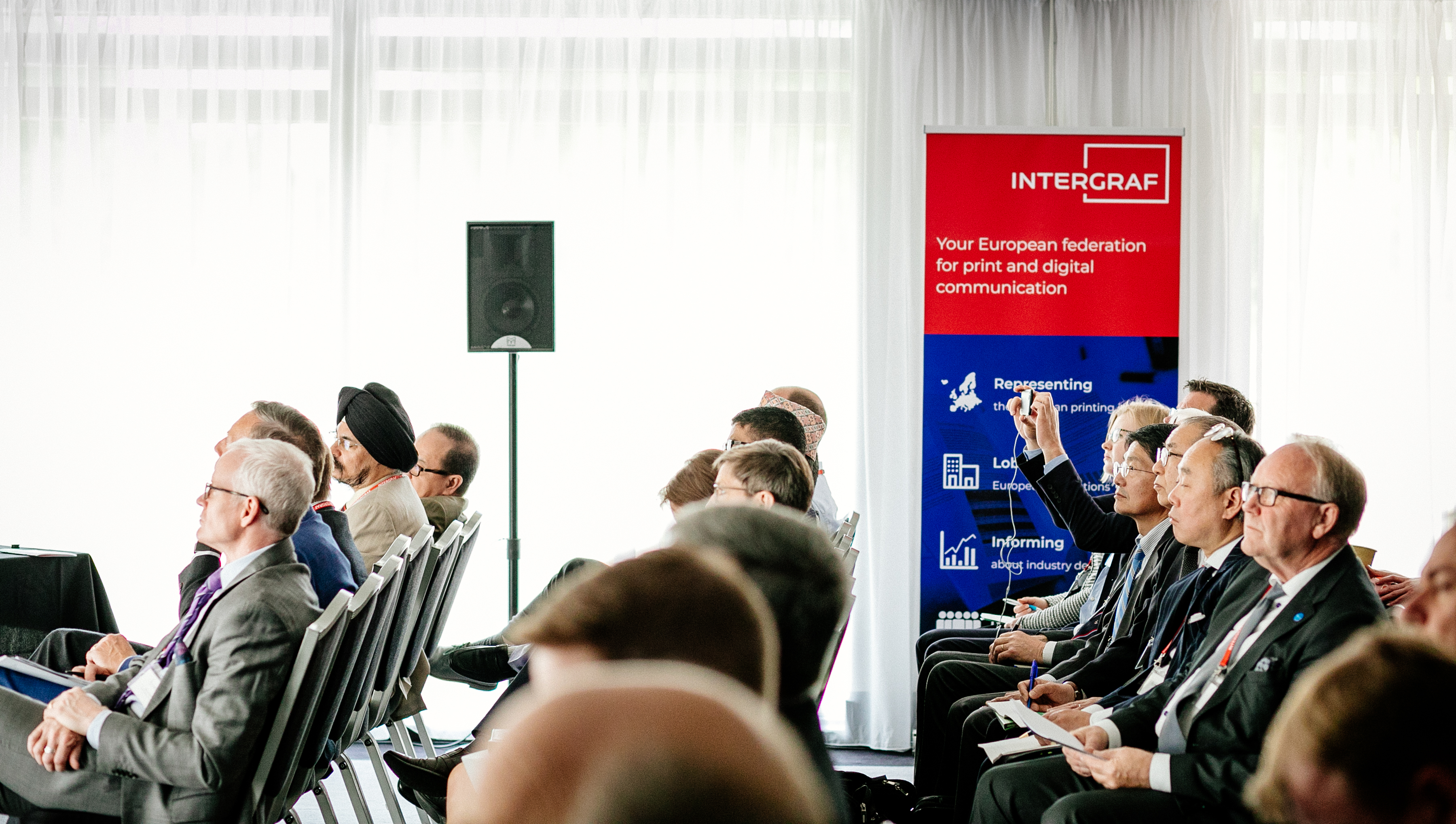No Christmas without books. EIBF, FEP and Intergraf joint statement
9 December 2021

No Christmas without books. Books are essential for Europe’s culture, education and economy
During the last 18 months, when most countries have experienced periods of confinement, books have proven their important added value in coping with loneliness, reinforcing ties between people and expanding our horizons, while stimulating our minds and creativity. Books contribute to well-being, creativity and cognitive achievements on a daily basis.
Books are essential cultural goods
Books offer an invaluable source of culture, creativity and food for the mind. They are key vehicles of knowledge preservation and dissemination and allow readers to let their imagination run free and escape into different worlds. They are essential in promoting freedom of expression, literacy and reading – the fundamental basis of a knowledge society – and foster greater democratic participation.
Books are essential to the development of local communities
Authors, publishers, printers and booksellers offer an important contribution to communities and society as a whole from the educational, cultural, and economic points of view. The book value chain is essential to provide access to literature and culture for all, thus improving reading habits across societies.
While digital technologies have proven to be very helpful in navigating through the difficulties of the past year, print books equally played their part. Being fair and inclusive, their very existence ensures that everyone in society – even those who lack digital skills or means – has access to culture, which is now more important than ever.
Books are essential for Europe’s economy
COVID-19 prompted many different policy responses at national level, with many countries imposing movement restrictions and even full lockdowns, leaving businesses that rely on physical presence of customers in a precarious position. Booksellers, as many of their retail counterparts, were forced to close their doors for many weeks and months – resulting in drastically reduced sales numbers and a de facto knockout effect on other actors of the book chain. This compromises the profitability of the entire book value chain and puts further pressure on its, already fragile, economic situation.
Printed books are essential to relax and disconnect
The last 18 months have drastically increased the amount of time we spend in front of screens: from daily teleworking to remote education and from online meetings to evening binge-watching.
A recent OECD study reports that students spend more and more time online, be it for school or for entertainment. For instance, already in 2018, a Danish 15-year-old spent 45 hours per week online. Printed books are essential to disconnect and enjoy time offline. Indeed, as the OECD study reveals, young people enjoy reading more when they read in print.
Yes to Christmas with books
The holiday season represents an important part of the yearly revenues for many businesses, printers, publishers and booksellers included. Books are one of the favourite Christmas presents of Europeans.
FEP, Intergraf and EIBF call on European and national authorities to:
Follow the lead of several European countries (e.g. Italy, France, Belgium) in recognising books as essential cultural goods, thus allowing bookshops to remain open
- Recognise the importance of reading and books in the field of culture and education
- Recognise the proven advantages of books in enabling the development of critical thinking
- Recognise the important role that bookshops play in their local communities
- Recognise the added value of printed books as tools of inclusion
EIBF Co-President, Jean-Luc Treutenaere, notes that “the bookselling, publishing and printing sectors stand united in emphasising the essential value of books, especially during the festive season. Books are sources of culture and creativity, and bookshops play a central role in promoting reading and in building fairer and more inclusive communities. This holiday season, visit your local bookshop: there is no gift quite like a book."
Intergraf President, Ulrich Stetter, said “Books are a very important cultural and educational product. Reading long informational texts in print has proven to be better for understanding and retention. Books are important for learning and understanding complex facts. Europe is in a great position to have an industry composed of small and medium sized companies that are active in this sector. The Christmas season is one of the most important seasons for our companies and we need to ensure that the value chain continues to strive – especially in these difficult times.”
FEP President Peter Kraus vom Cleff states: “At the eve of the Christmas holidays, when we all long for both some cosy rest time and sharing presents with our loved ones, books remain one of our favourite pastimes. Especially in these troubled times books allow and enable us to travel and escape with our imaginations. And paper is very well suited for these imaginary journeys, with each turning of the pages we are entering worlds of knowledge, entertainment, pleasure, and new perspectives.”
EIBF, FEP and Intergraf will jointly be working on a complete Declaration which will also deal with the importance of print books for Europe’s economy as well as for education, the excellent sustainability of our products as well as their function as a source of information and entertainment for those persons who are not able to use digital alternatives.
About EIBF
The European and International Booksellers Federation represents national booksellers’ associations in the European Union and beyond. Our members in turn represent a variety of booksellers, including brick and mortar bookshops, online bookshops, independent bookshops, and chains. Through its member associations, we speak on behalf of more than 25,000 individual booksellers. Find out more.
About FEP
FEP is an independent, non-commercial umbrella federation of national associations of publishers of books, learned journals and educational materials from all over Europe. FEP represents 29 members from 28 countries, mainly located in the European Union and of the European Economic Area. FEP is thus the voice of the great majority of publishers in Europe. Find out more.
About Intergraf
The European printing industry (EU+UK) is made up of some 110,000 printing companies (95% SMEs), which employ 600,000 people and generate a combined turnover of €79 billion. Intergraf (www.intergraf.eu) is the European printing industry association, representing employers in this sector. We are a Brussels-based umbrella organisation with 20 members from 19 countries. Our primary task is to represent and advocate for the printing industry in Europe, working with European Union to support the sector’s competitiveness through advocacy, information-sharing, networking, social dialogue, and European projects.
Download the full position paper here.
{K2Splitter}






